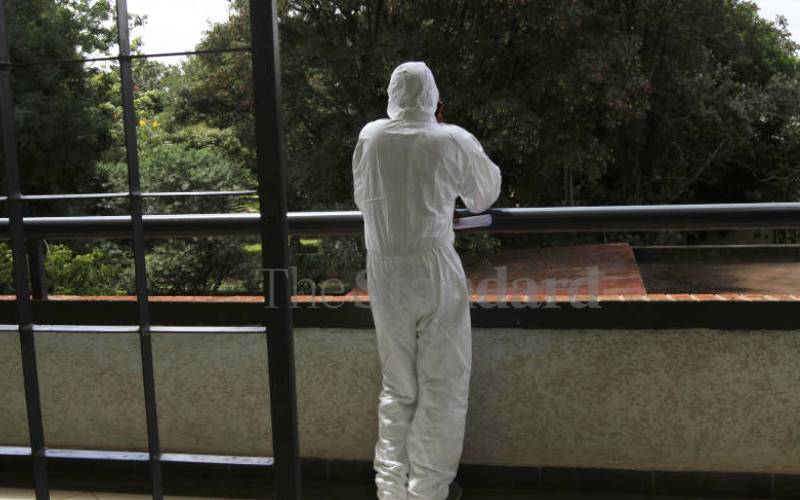
A man wearing PPEs looks from a balcony in Nairobi. [Elvis Ogina, Standard]
State and private companies illegally harvested and shared Kenyans’ private data during the Covid-19 pandemic in direct breach of the Data Protection Act, 2020.
This is according to a new report that details how the pandemic fuelled infringements to citizens’ privacy, freedom of expression and access to information in Kenya and Uganda over the past year.
Facts First
This story continues on The Standard INSiDER. Subscribe now for unfiltered journalism that holds power to account.
Already have an account? Login
 The Standard Group Plc is a multi-media organization with investments in media
platforms spanning newspaper print
operations, television, radio broadcasting, digital and online services. The
Standard Group is recognized as a
leading multi-media house in Kenya with a key influence in matters of national
and international interest.
The Standard Group Plc is a multi-media organization with investments in media
platforms spanning newspaper print
operations, television, radio broadcasting, digital and online services. The
Standard Group is recognized as a
leading multi-media house in Kenya with a key influence in matters of national
and international interest.











